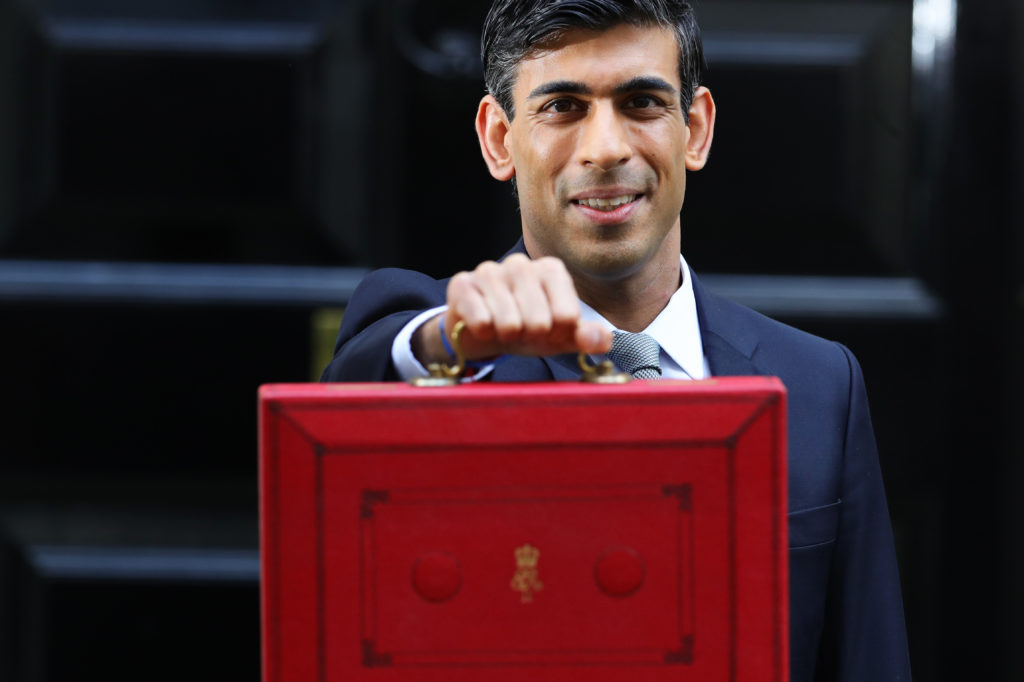The UK faces a profound economic crisis. On Thursday, the Bank of England aggressively upped interest rates by 0.75 percentage points to 3 per cent, the biggest single increase since 1989.
Millions of mortgage- and rent-payers will be hit hard by this hike,exacerbating already-torrid economic conditions as real wages fall and costs continue to rise.
In the same announcement, Threadneedle Street warned that the UK is set to experience a “very challenging” two-year recession projecting that inflation will remain above 10 per cent for the next six months and that unemployment will rise from 3.5 per cent to 6.5 per cent by 2025.
In his battle to breathe life into Britain’s stagflated economy, the big problem for Rishi Sunak is that the Conservative party is on the hook politically for our worsening economic situation.


The “mini” Budget opened Pandora’s Box. Expectations for modest rate rises into the Autumn were blown open by the rapid implosion of the Truss experiment. To be fair, this was not Sunak’s doing. Over the summer, he was the doomsayer-in-chief on Trussonomics; most days he popped up on TV to warn that how Truss’ approach would see the market price in economy-wrecking rates of around 6.5-7 per cent.
After the Bank’s announcement on Thursday, Westminster collectively entered the brace position for the next event in the economic calendar: Chancellor Jeremy Hunt’s upcoming Autumn Statement.
When it comes to potential spending cuts, the understanding is that no department is safe. Certainly, with a £50 billion black hole in Britain’s finances, Treasury spokespeople have been sending out ominous messages: “difficult decisions on tax and spending” are coming.
In any case, the Autumn Statement is likely to be a grim day for the Government and for the nation.
But perhaps this is Sunak at his most comfortable. The former chancellor has built his post-Truss political appeal around one idea: getting the Conservative party to swallow a combination of public spending cuts and broad-based tax rises. Now is his chance to deliver.
The PM’s cabinet is itself a carefully constructed political machine premised on manufacturing economic results. Sunak loyalists Mel Stride, John Glen and Jeremy Quin occupy prominent economic briefs, whereas Trussite cheerleaders have been conspicuously excluded from Treasury-adjacent positions.
Arguably, this shows some much-needed political imagination from Downing Street.
The policy duopoly of Hunt and Sunak wants to make Conservative politics about economic trade-offs once again, marking the revival of a political formula which brought success between 2010 and 2015.
Forget Johnsonite “culture wars” or Trussite utopianism, optimistic party insiders are suggesting that Sunak’s new focus on balancing the books will present interesting problems for Keir Starmer’s Labour.
The thinking is thus: just like in the Miliband years, Labour may find itself in a double-bind on cuts, potentially resulting in the party abandoning some of its investment plans lest they be seen as irresponsible.
But this is a best-case scenario for Sunak.
And there is little disguising the fact that the Conservative party now is a fundamentally different beast from the party which won in 2010 and 2015.
A huge spinning operation will be required from Sunak if he is to challenge the view that the Conservative party is the author of the central bank’s rate rises.
We saw the beginnings of this on Thursday, during chancellor Jeremy Hunt’s response to the Bank’s announcement. Hunt was keen to stress that he saw the hike as an international problem: “Interest rates are rising across the world as countries manage rising prices largely driven by the Covid-19 pandemic and Putin’s invasion of Ukraine”, he said.
In the end, the ever-relevant economic fallout following the “mini” budget went unmentioned.
Interestingly, Hunt’s diagnosis of the causes of Britain’s economic misfortune was at odds with Bank of England Governor Andrew Bailey’s account. Speaking earlier that day, Bailey spoke candidly on the “questions” asked of recent U.K. policy and the impact of a “UK premium” on borrowing costs.
This analysis was music to the ears of Labour’s Sir Keir Starmer, who, echoing Bailey, spoke caustically about a “Tory premium” on mortgages.
Starmer knows that if the Labour Party is to maintain its polling lead, it cannot allow Sunak the political space to launch a soft reboot of Tory politics. The party cannot allow Conservative MPs to bury their association with “Trussonomics”.
But Labour notwithstanding, Sunak’s key problem rests within his own party. Trussonomics is not dead yet.
If you cast your mind back to September, Truss’s economic platform garnered the support of party members and a substantial chunk of the parliamentary party. There was a ready-made cultural alliance of small-“c” conservative commentators, newspapers and think tanks willing to preach the low-tax, low-regulation creed.
For Sunak, these are all potential political opponents in wait — who may at any point begin rubbishing the prime minister’s economic record if they sense fiscal overcorrection. The Telegraph is already warning that the “Tories risk becoming a Labour-lite party” under Sunak.
But perhaps even more worrying for Sunak is that prominent Trussites serve as a constant reminder of the party’s mini-budget complicity. Simply put: how can the PM expect a suffering British public to forget about Trussonomics when its most vocal proponents still occupy high political office?
Sunak must hence walk a political tight rope: at once rubbishing his predecessor’s policies behind closed doors and simultaneously projecting an image of untroubled Conservative competence in public.
History tells us that markets have short memory spans — and, ultimately, Sunak’s hawkish image, coupled with harsh tax rises and spending cuts may be enough to calm financial nerves. But the problem for Sunak is that British public may prove less fickle.
As taxes increase and with across-the-board spending cuts expected, a rising Bank rate will soon be but one of a range of economic grievances thrust in the Conservative party’s direction.
And as this plays out, expect a whirlwind of political spin from Sunak and Hunt. The recession blame-game can only get more fraught.












